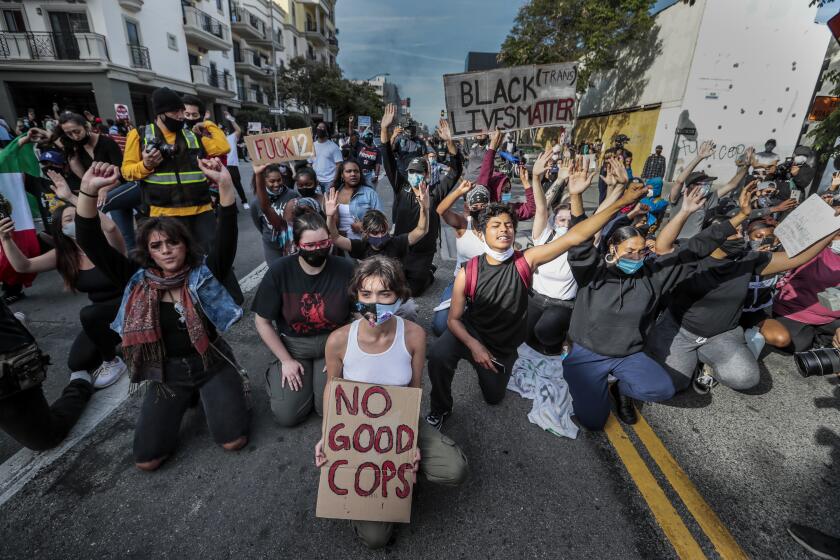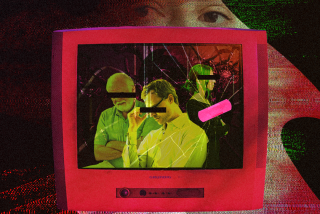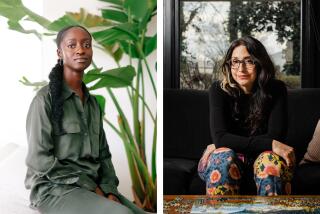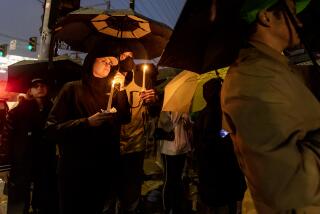Column: No, white people. You can’t ease your guilt over racism by paying black people via Cash App
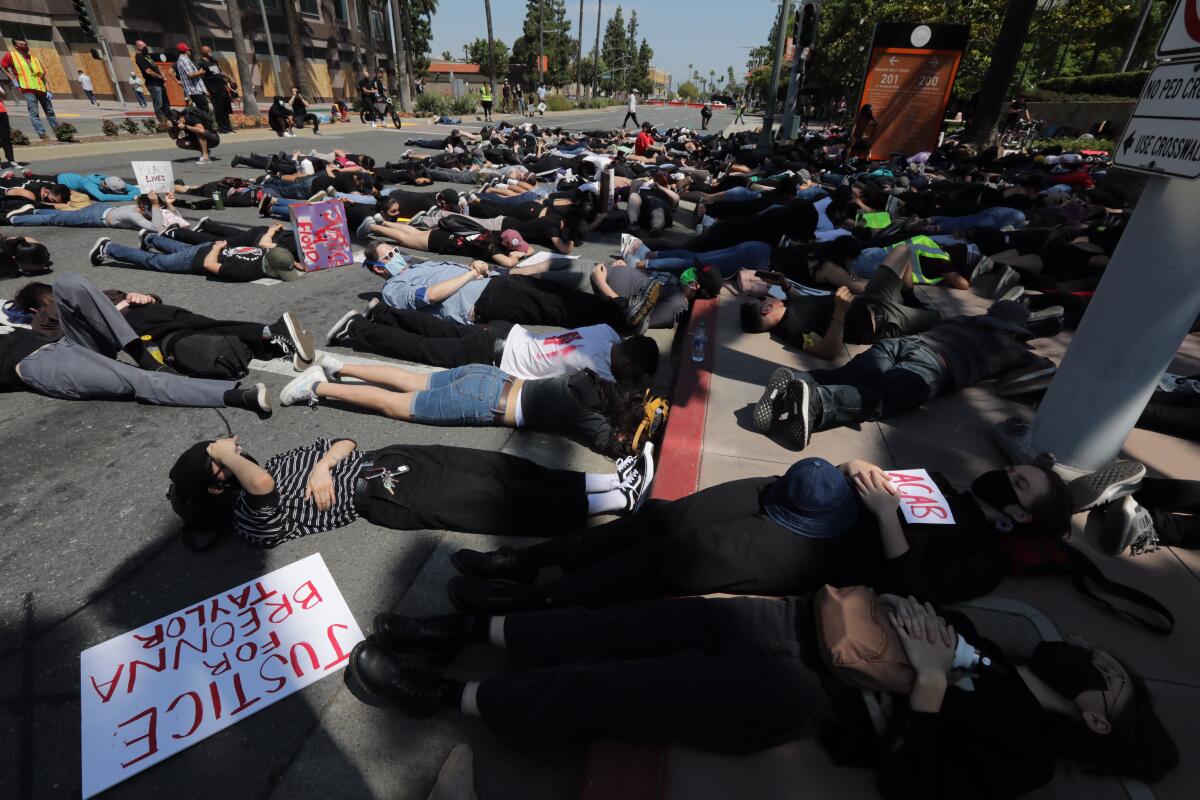
- Share via
The first message arrived the day after George Floyd died, as the video of him being suffocated, a white police officer’s knee on his neck on a Minneapolis street, started circulating and as protesters were first taking to the streets.
“Hi. Just checking in. How are you feeling? Are you worried?”
It was from someone, a white person, I hadn’t exchanged two words with in at least a decade.
The second message arrived a few hours later. Also from a white person I barely know. Then a third. This time, the person wanted to know how she could help and what she should read to learn about racism and black lives. The next day, there were even more — on Twitter, on Facebook.
At first, I thought it was just me. And then I realized that, no, this is a thing. A strange and bewildering thing that, in the days of unrest since Floyd’s death, has provoked emotions ranging from appreciation to annoyance to aggravation to utter exhaustion among black Americans already stressed to the limit.
It has gotten to the point that someone has actually developed and distributed a list of canned responses for black people to answer questions from suddenly curious white people. For the culture, I cannot divulge more.
There also have been instances of white people sending black people they don’t know money through the Cash App.
A friend of mine runs a Facebook group that he bills as a safe space for black people to grouse about life and current events, and he says he has been inundated with requests from white people to join it.
“Every other day, I’m getting three or four requests from white folks that I don’t know to be friends on Facebook,” he told me, asking that I not use his name. “We have no mutual friends.”
All of this was probably inevitable. After every police killing of a black man or woman or child — and there have been many — white people are told to be good allies, to be empathetic, to check their privilege, to listen and, above all else, to “do the work” of getting to know black people and understanding racism.
And people are genuinely trying. I don’t want to knock that, especially because people of every race and ethnicity have been moved to march over Floyd’s death.
But with peaceful protests and violent revolts happening nationwide and even worldwide, I also wonder if something else is going on, too. For it’s one thing to inquire about the well-being of a friend or a coworker, or of an acquaintance you often see out and about or chat with regularly online. That’s appreciated. It’s quite another thing to suddenly hit up a stranger — a someone not thought about in five, six, seven, 20 years — and demand attention and emotional energy.
That these violent uprisings and peaceful protests are happening all over California speaks to something black people know well and others ignore.
Perhaps some of this reaching out over social media has to do with our country being so segregated? Depending on where you live in California, for example, making black friends — or friends of a different race, period — takes real work. Although our state is diverse, the neighborhoods of our cities are incredibly divided, one of the side effects of rampant gentrification. And our rural areas aren’t very diverse at all.
Or it could be that these messages reflect a new level of white guilt brought on by a new level of black rage. The unrest over Floyd has done nothing if not rip away the facade, making it clear that the United States, including liberal California, is steeped in systemic racism — from the criminal justice system to the economy.
A recent Monmouth University poll found that a majority of Americans now agree that police are more likely to use excessive force against black people than white people in similar situations. Only one-third of the country held this opinion four years ago. Also, the percentage of respondents who said racial and ethnic discrimination is a big problem is up to nearly 75%, up from about 50% in 2015.
So what happens when white people who aren’t racist suddenly can’t ignore — because protesters are everywhere — that they have unwittingly benefited from a racist system all of their lives? That maybe the college they attended, the house and the business they own, the car they drive were easier attain because they didn’t, say, get popped for smoking weed like the black folks a neighborhood over or that they didn’t have trouble getting a loan from a bank like millions of people of color do every year.
Any moral person would feel at least little guilty about that. That’s why I choose to believe most of these messages are coming from a good place.
But there’s some ego wrapped up in this, too. It’s what I see in many of the Instagram selfies and stories from Black Lives Matter protests. It’s as if white people are trying to broadcast to the world that they aren’t racist. My friend Tiffani Sharp, a Sacramento attorney with a specialty in cannabis equity, described it as a need to share sympathy, rather than empathy.
“I had one lady tell me, ‘My soul is aching about what happened.’ You?” she said. “What about me?”
So, please, don’t do that, white people.
Another thing not to do is ask black people — especially black people you barely know — to teach you about racism or to give you a list of books to read about racism.
“Use your internet. It’s the same thing I’m about to do,” said my friend Tre Borden, a L.A.-based art consultant. “If you’re not willing to read on your own and you want me to read for you, I don’t trust you to liberate me anytime soon.”
It’s insulting — not to mention tiring — because of the privileged assumption that now that you are ready to learn, black people should be ready to teach you. Sharp says one of her friends has been asked so many times that she has started charging people via her Cash App, figuring if they want her to act like a consultant, she should be paid like one.
“People only want to be educated when something like this happens. Nobody is sitting around when everything is great, thinking there’s this gap in my knowledge,” she said. “Like, ‘Whoops! I don’t have any black friends. Let me get some black friends.’ Now is not the time to be making black friends. If you don’t already have them, you are part of the problem.”
So now that I’ve told you all the things you shouldn’t do, you’re probably wondering what you can do.
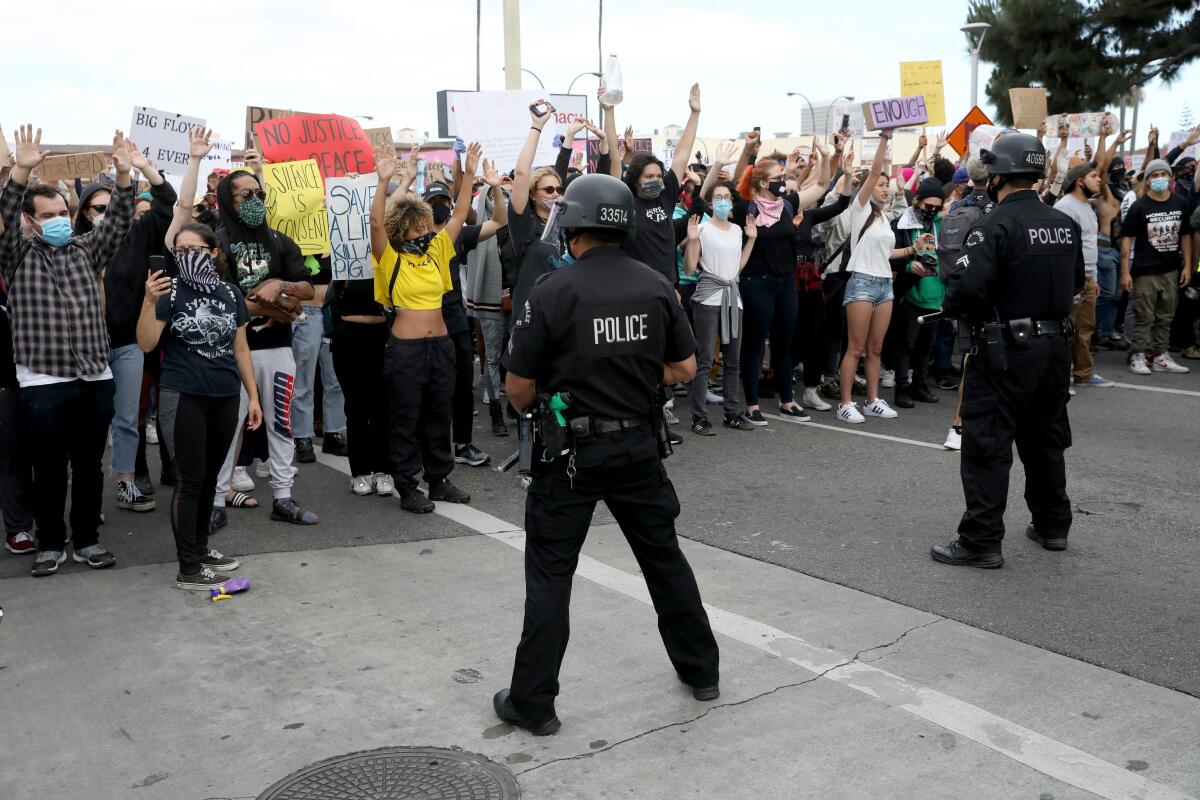
For one, talk to your relatives who still support President Trump, even though he appears ready to declare martial law. Also, think about how you vote, not just for president, but for ballot propositions and candidates who want to make things more equitable, especially for district attorney.
Shop at black-owned businesses. Don’t be so quick to say no to that affordable housing complex in your neighborhood. Encourage your kids to speak up about racism. In short, do the work — every day, not just when a black man dies and there’s a protest — of dismantling a system that, for too long, has benefited too few Americans.
“‘Elika, what do I do to help?’ is the most infuriating question,” said my friend and community organizer Elika Bernard. “Because we’ve been telling white people. It’s all there, right in front of their faces, but they haven’t been listening.”
Listening is one thing. Doing is quite another.
More to Read
Sign up for Essential California
The most important California stories and recommendations in your inbox every morning.
You may occasionally receive promotional content from the Los Angeles Times.
